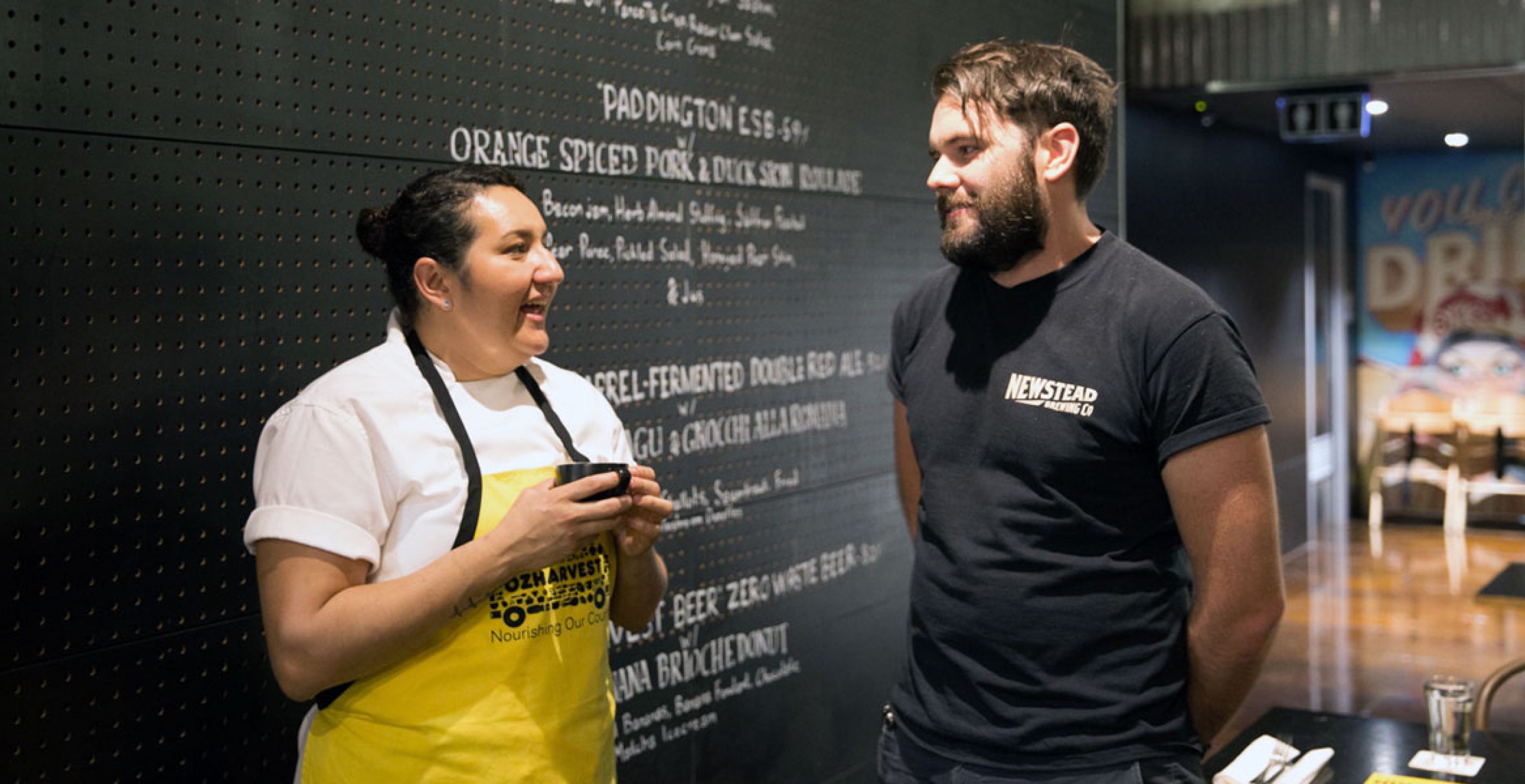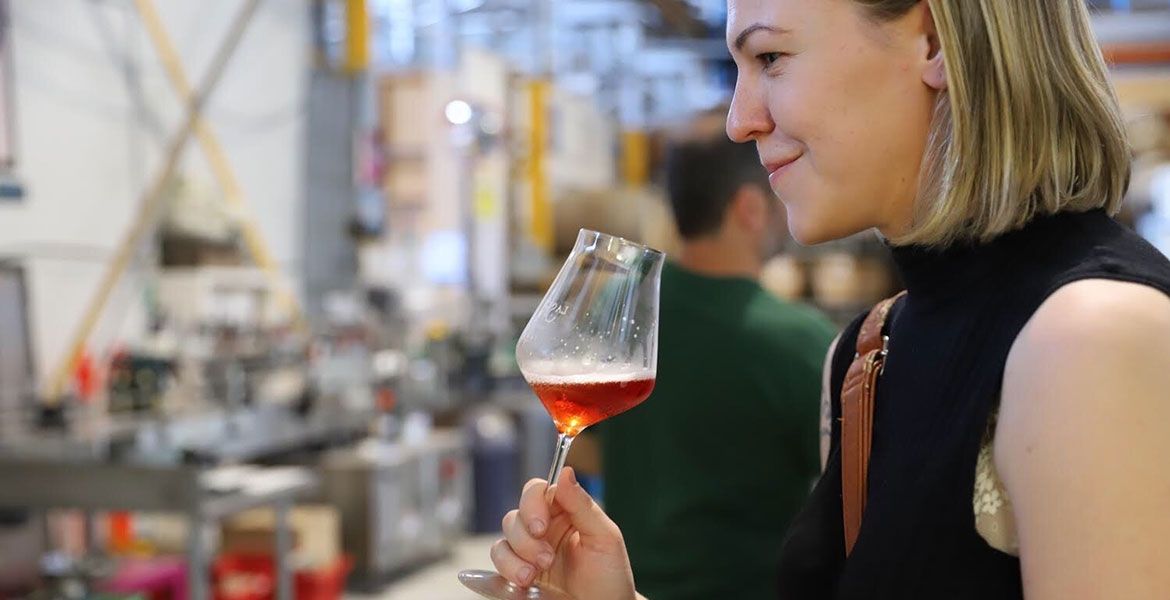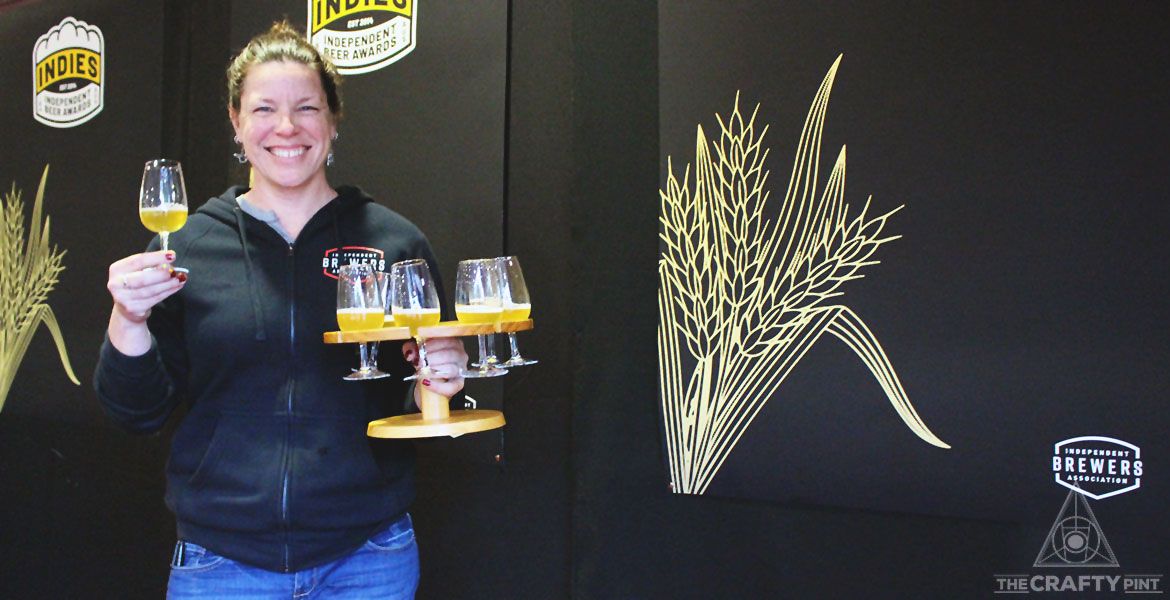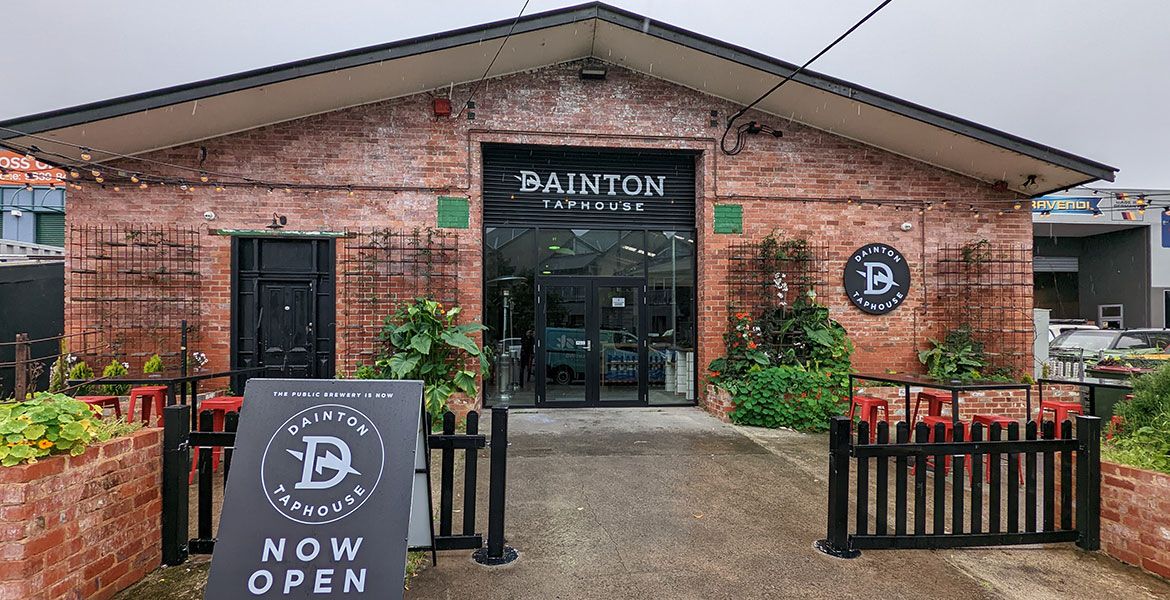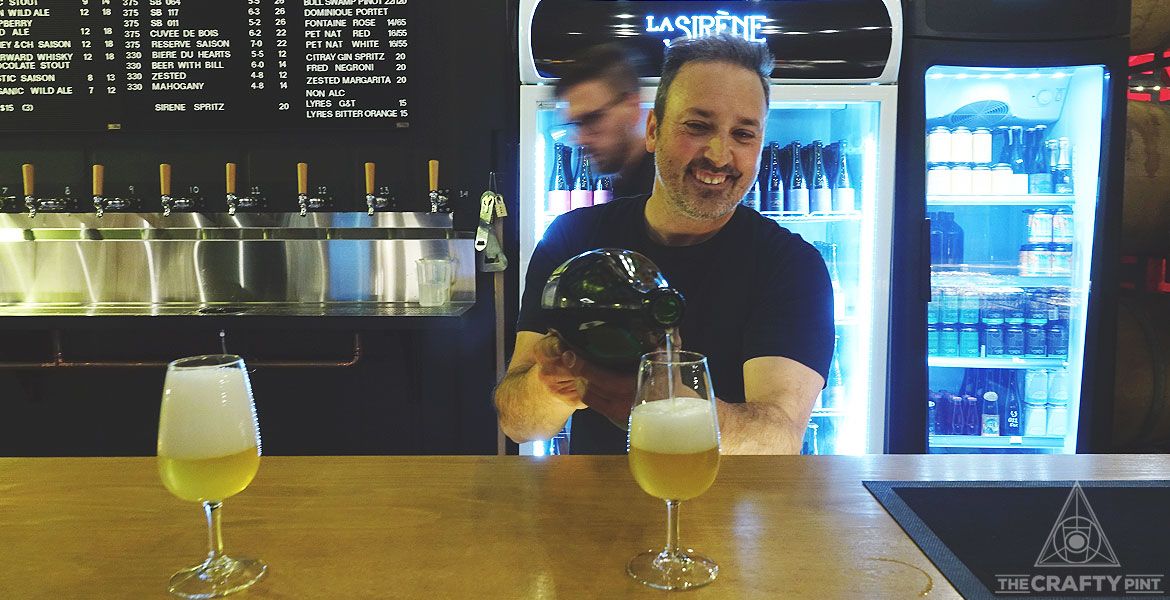What's it like to work in the beer industry? As the local beer world expands at a rate of knots, the opportunities grow too. Our Day In The Life Of series aims to give readers a peek behind the scenes to understand what goes into making the industry tick.
This time around, the focus is on venue managers, with our star man Jim Gold of Newstead Brewing (pictured above). And clearly he is a star as he's just been promoted to general manager.
Here's Jules Charalambous with his story...
Alright brewers, we love ya, but it’s time to step out of the limelight for a hot minute. Sure, you’re kind of the reason we’re all here on our beery journeys, but today we’re dedicating this space to the people running your taphouses and the bars through which your beer flows: the venue managers.
Running a taproom, or any venue for that matter, is no small feat; keeping the lights on, getting the right amount of beer in the keg room, designing, promoting and staffing events – not to mention putting out fires left, right and centre. If you haven’t got a venue manager on your list of unsung heroes, go have a chat to your local; guaranteed your list will change.
For this edition of A Day In The Life we’ve dropped into Newstead Brewing Co’s flagship brewery, taproom and spiritual home in Doggett Street to talk to the one and only Jimmie Gold. We chatted about hospo-life, running a successful venue, how Jimmie got to where he is, and his advice for others looking at the venue management path.
Jimmie's the kind of bloke you always greet with a "G’day mate" and, even when you don’t really know him, he really feels like a good mate. He’s humble, with a warm smile that can only ever feel genuine. He’s the kind of person who when you’re talking he’s truly listening, he’s present and engaged. He’s always got a story to tell, and he’s the kind of dude that you just know can fix shit. It’s the sum of all these parts that make him a bloody great venue manager.
He's also a veteran of the Brisbane craft beer community, cutting his teeth at the now defunct Festival Cellars in Red Hill, before becoming a part of the opening team at the original Tippler’s Tap then joining (and climbing the ranks at) Newstead. To date, that’s some eight-plus years of pouring beers, for those playing at home.
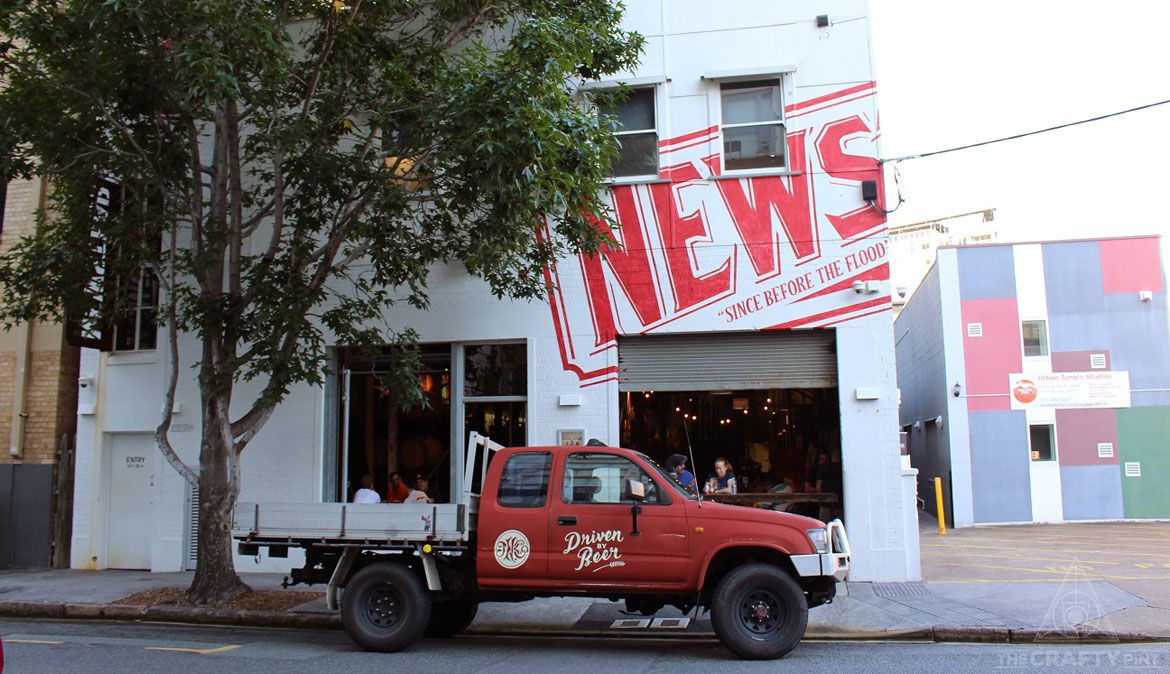
How did you get your first taste of craft beer?
Jimmie Gold: Me and a mate would have these Wednesday night catch-ups. We’d go to A Salt and Battery in St Lucia, which is BYO, we’d go to the Vintage Cellars next door, which at the time had such a good range of Belgian beer – Chimay, Orval – that kind of stuff. My mate had a bit of an insight into it and I was just always keen to try new beer.
We’d just buy a bottle each and share it over dinner. That was it, from there it was just a thing. I thought: "Wow, this is incredible! These beers are, what, eight percent and they taste incredible." I had no idea what I was drinking, I had no idea how to describe the flavours I was tasting, but I knew I really enjoyed it. Definitely not the kind of thing you want to pair with fish and chips either, but it didn’t really matter.
From there, it was just a lot a reading, drinking and scouting for jobs in venues with anything that resembled craft beer.
What does you typical day look like?
JG: We do a number of events here – all the brewery tours that Newstead do are here, so we're a bit like the spiritual home of Newstead. That always keeps it a bit more exciting and interesting.
But it varies, largely it’s just making sure the lights are on, the pizzas get to the table, the beer is pouring, and that things are excited and everything’s working. That’s my job, I’m a common sense ambassador: I make sure that everything that’s supposed to work is working and, if it’s not, I fix it. I put out fires basically.
The amount of stuff I’ve done, not just here but at any venue, it’s just things you never expect, right? Anything can happen. Like, I came in the other day, and all my fridges had shorted out. Cool, it’s now my job to fix that, let’s call a contractor, that’s pretty minor.
But say the Saturday I came in and the first beers of the day were ten tasting paddles for a brewery tour group, but it turns out the glycol had died overnight, so all the beers had been sitting at like 15 degrees. That’s why it’s the common sense ambassador, because that’s what it is: I have to stay calm and manage what happens to happen, and just fix it, because there’s no other option.
And hospitality, especially a seven day venue, it’s waves at a beach, it doesn’t stop, it’s just going to keep happening. So you go: "OK, it’s 10.15am on a Saturday, I’ve got all warm draught beer, so what am I going to do?" You just go: "Alright, I know we’ve got miracle boxes out at Banyo, I'll get on the phone, get someone to bring one of those in. At least we’ve got two taps of cold beer while we fix this shit..."
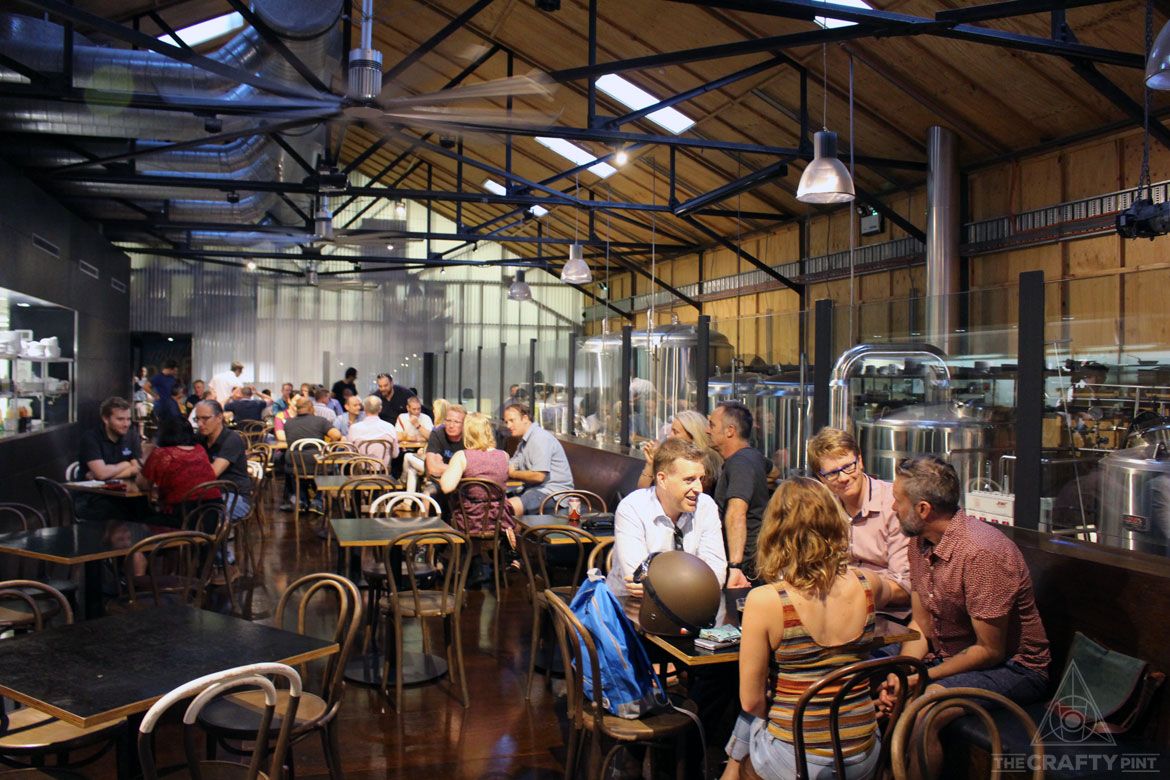
Or it’s ten past twelve on a Friday lunch, and our tills have just shit themselves, or our EFTPOS has gone down, and there’s a line out the door of people wanting to eat and drink in 45 minutes or less. How am I going to make this happen?
That’s the job, it’s troubleshooting. But without the time to troubleshoot; there’s no committee, there’s no: "Alright guys, let’s think-tank this, we’ve got two weeks before our proposal." It’s like: "Fuck, I’ve got a dude right in front of me that wants a cold beer" and you’ve just go to think on your feet.
I feel like that’s where it’s exciting. And I love it. I love it because I know I thrive in those situations, I hate being bored, I hate monotony, so I love when shit goes wrong, because it means I get to exercise experience. You do this for eight years and you go, "That’s right, six years ago at Tippler’s we ran out of gas" and I go, "OK, I know where to get a new gas bottle, I know how long it’s going to take me, I know I can carry it on my back so I’ll get on my bike and I’ll go get it." You just fix it.
Because that’s the other thing with hospitality: there’s no perfect structure to a lot of it. You don’t know exactly how many litres you going to sell, you don’t know how many kilos of chips you’re going to sell, you don’t know how many people are going to come in. You forecast as best you can, but then you have times when, for five weeks consistently, you sell 3.5 kegs of this one beer each week, then suddenly one week a bus load of people come in on a Tuesday and drink it all. You run out, you figure something out. You make it happen. It’s just staying calm and fixing shit.
What has been your biggest hurdle working as a venue manager?
JG: The customer service side was fine, I never had a problem with the long days and late nights. I think the hurdle in the long-term is staying friendly.
Managing people is largely what you do in hospitality, whether it’s patrons or your own staff, but learning that is a long-term skill. You can’t just read "How To Manage A Team"; you need to work under an asshole to know how to not be an asshole.
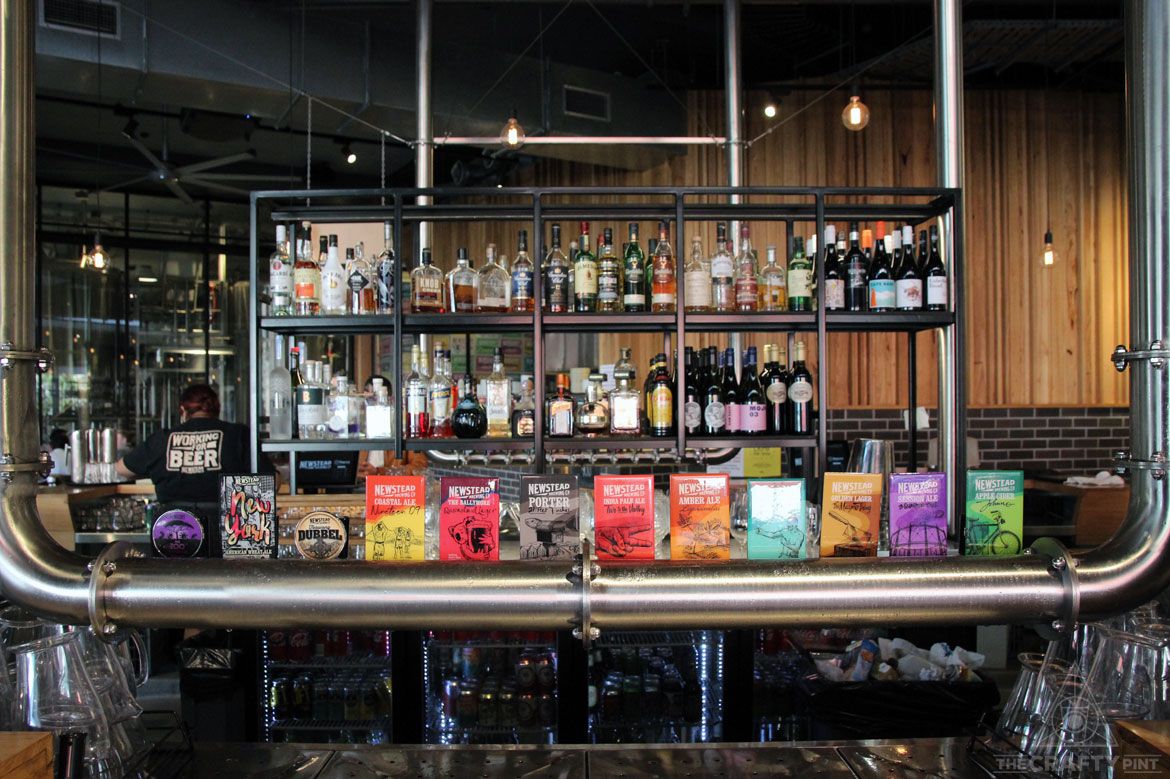
What’s your advice for people who want to get into craft beer, specifically venue management?
JG: Just immerse yourself in the whole thing. Don’t ever think something is beneath you, because there’s often things you can learn from stuff you might turn your nose up at.
Don’t write off a label because you don’t like their label or something, because they probably make a beer that’s better than most other breweries' version of that. There’s so much to learn about beer, but we’re not just selling litres of beer. We’re selling an experience, an education, entertainment, all the rest of it.
Cheers for the chat, Jimmie. To have your own yarn with this local Brisbane craft beer legend, you’ll find him at Newstead Doggett St pretty much any given day of the week.
You'll find other entries in our not-regular-enough A Day In The Life Of: series here.



